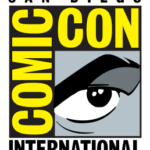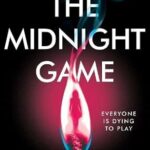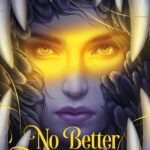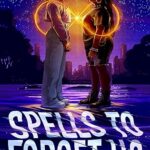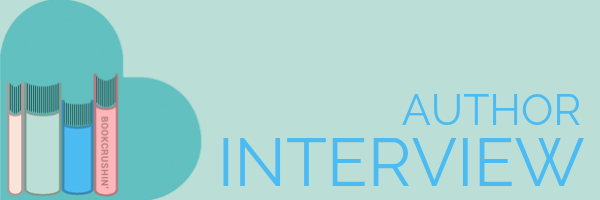
Blog Tour & Author Interview: Down World by Rebecca Phelps
I love stories that play with time and space – and Down World has both! A mix of sci-fi and horror, this story is sure to be packed full of action. We checked in with author Rebecca Phelps on her upcoming release – check out our interview below! Down World is our March 30th. Preorder it now!
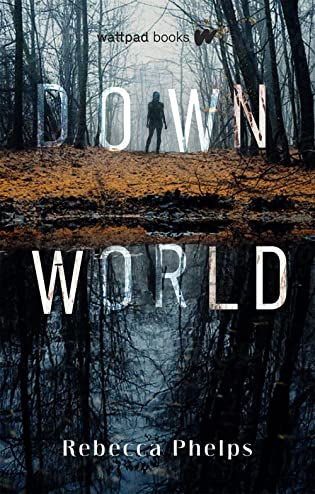
Down World
by Rebecca PhelpsPublished by: Wattpad Books
on March 30, 2021
Genres: Young Adult, Sci-Fi
Audible
Goodreads
As the site of a former military base, there have always been rumors that East Township High School was the site of experiments with space and time. For years, students have whispered in the hallways of a doorway created within the school, one that can access multiple timelines and realities, a place known as the Down World.
As the new kid in school and still reeling from the unexplained death of her brother Robbie, Marina O'Connell is only interested in one thing: leaving the past behind. But a chance encounter with handsome Brady Picelli changes everything. He will lead Marina to a startling discovery. The Down World is real and the past, present, and future are falling out of balance.
Brady is determined to help Marina discover what really happened to her brother. However, what is taken from one world, must be repaid by another. And Marina is about to discover that even a realm of infinite possibilities has rules that must be obeyed.
Interview with Rebecca Phelps
What inspired you to write Down World?
It started with a picture in my head: the three doors under the school. I didn’t know where they led yet, but I knew that whatever was behind them was something you couldn’t live without. It would eat you up if you tried. And even though I’d been writing screenplays for many years, I knew this one had to be a novel because it was going to be big. A big what? Who knows.
It wasn’t until I started thinking about family and loss, and about my relationship with my own brother, that the arc of the story started to appear to me. And then I knew it would be about a girl saving her brother. I’ve always loved Greek mythology, and it occurred to me that it would be like Orpheus descending into Hades to rescue Eurydice, but hopefully with a better ending.
It was definitely one of those things where the more I wrote it, the more I HAD to write it. It dragged me out of bed in the morning. It made me sit down and type. Some stories write you.
What struggles did you face when writing Down World? How did you use your background in film to write this book?
Writing a first book is hard in a lot of ways. The first struggle will probably sound familiar to every writer: finding the time to do it. I had a toddler and an infant when I started writing Down World, and I wrote it at the coffeeshop down the street at 6:30 a.m. in half-hour spurts.
There’s also the nagging inner monologue: What if nobody reads this? Why am I doing this? Why aren’t I asleep?
But at the same time, I knew that this story would haunt me if I didn’t write it. When I was an actress, I did plays for audiences of two sometimes (one, if my father got up to use the bathroom at intermission and didn’t come back). I’ve written a dozen screenplays that never made it to a screen. Every writer in L.A. has these stories. We do it anyway. Maybe we’re masochists. Okay, fine, we’re definitely masochists. But then the story comes to you and you write it down. Because writers write.
And I wrote it like a screenplay because that’s what I know. I study film. Kind of obsessively. I mean, I literally broke it up into three acts. Old habits die hard. And, yes, Marina goes on a hero’s journey, and she comes back with the elixir in the end just like Joseph Campbell said she should. And the scenes have rising and falling action, and increasing stakes, and inner and outer conflict, and pretty much every chapter ends in a cliffhanger because that’s how you write a screenplay.
I write what I know. But with portals.
Your writing style is often described as cinematic. What films or TV shows have inspired your writing style?
When I was acting, my teacher was a big fan of studying old films, paying attention to not just whether you liked them, but why you liked them. Elia Kazan’s On the Waterfront. Sidney Lumet’s Network (with that brilliant Paddy Chayefsky script). Francis Ford Coppola’s Godfather movies. Was it the characters? The dialogue? The pace? All of the above?
I can’t tell you how often I think of the restaurant scene in The Godfather where Pacino has to kill the guys plotting against his dad. And it’s just the train passing and the muted dialogue and Pacino’s eyes, bouncing around the frame, thinking. And stuck in the moment. And needing to act because it’s too late to do anything else.
That’s every scene.
Comedies are great for this, too, because they’re all about pace and character. You can learn everything you need to know about how to tell a story by studying the first Indiana Jones movie: character, dilemma, driving action.
Great TV does this every week. The old Twilight Zones are nothing but hook and execution. Throw people in hot water and see how they claw their way out. Star Trek always did this well, too. “The City on the Edge of Forever.”And, more recently, Mad Men. Give people two bad choices and see which one they pick. (Hint: they pick the one that serves them best.)
How does Down World stand out from other books of the same genre? What do you hope to bring to young adult fiction?
Truthfully, I never really sat down and said to myself: Now I will write a sci-fi story. I sat down to write a family story. And it’s a story about loss and hope and, ultimately, redemption. Not just for Marina and the people she loves, but on a grander scale. Are we, human beings, capable of redemption? Will we just keep making the same mistakes over and over again? Are we slaves to our darker impulses, and will they always win in the end?
Sci-fi ended up being the perfect genre for that, because that’s what all sci-fi is asking: Step back—no, way back—and look around you. How does it look from here? Do you still believe in change? Is there optimism back here? Is there hope? Think Star Wars, Dune, Blade Runner. It’s all the same question: Will there be anything left to fight for by the time we get here?
Also, when I first started writing Down World, I will admit that I hadn’t read a lot of contemporary YA fiction (I have since made up for lost time in that department!). Instead, I was thinking of the kinds of books I read when I was in high school: Kurt Vonnegut’s Cat’s Cradle and Breakfast of Champions; Tom Robbins’ Skinny Legs and All. Big, epic, mind-boggling, weirdo books that made you think and wonder and feel kind of small. I think all readers, and especially teenagers, crave that.
So I told my story, my way. And it came out big and cinematic because that’s what stories feel like to me. Maybe that’s why my novel gets compared to Stranger Things more than to other contemporary YA novels. And while I’ve absolutely loved so many of those novels, I’m happy with my seat at the table.
What advice would you give to young writers aspiring to write Sci-Fi stories?
I can tell you, especially as women in sci-fi, it can sometimes feel like you wandered into a pool hall full of men chomping on cigars, and a record screeches, and everybody turns and stares at you. And you’re 12.
But the truth is there’s room for everybody in this genre if you’re telling a story that’s personal to you, a story that you would want to read. And also, don’t forget, sci-fi can mean a million different things. On the surface, the Foundation trilogy and Outlander don’t have much in common, but they’re ultimately doing the same thing: asking you to step back and examine humanity from a distance.
Outlander is a great example, too, because it’s really historical fiction, as told through a lens of a main character with enough perspective to put it into historical context. Sci-fi was just the tool Gabaldon used to get us there. Also, hot men in kilts.
If you have a story to tell that’s both personal and intimate, and yet is simultaneously larger is scope than that, then there’s a place for you in sci-fi.



